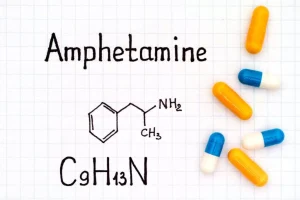Health Risks of Alcohol: Problems Caused By Chronic Heavy Drinking
Sober living || ||
So it’s your liver’s job to detoxify and remove alcohol from your blood. The liver breaks down alcohol into acetaldehyde, a toxic substance that scars and inflames the liver. This chemical also interferes with the liver’s ability to break down and metabolize fats. This causes that fat to accumulate and may lead to fatty liver — an early stage of alcohol-related liver disease. People who binge drink or drink heavily may notice more health effects sooner, but alcohol also poses some risks for people who drink in moderation. Once someone reaches end-stage alcoholism, the brain, heart, kidneys, and liver have already experienced significant damage.
How is alcohol poisoning treated?
Someone with alcohol poisoning will be breathing slowly or irregularly, have cold skin, be vomiting a lot, and perhaps have a seizure or lose consciousness. A drunk person can recover with rest, fluids, and eating a balanced meal, while a person with alcohol poisoning needs to go to the hospital and get an IV or maybe their stomach pumped. In the U.S., paramedics don’t charge for a visit unless the person needs to go to the hospital. Binge drinking is defined as drinking that brings blood alcohol concentration (BAC) to 0.08% or higher. It’s also important to remember that BAC can continue to increase as long as 40 minutes after your last drink.

Why there’s no straight answer

While many binge alcohol users aren’t alcoholics, they need to stop doing the thing that’s causing the damage. Over half of alcohol-related deaths are because of health effects from drinking too much over time. It can lead to things like cancer, liver disease, and heart disease. But drinking a large amount of alcohol in a short period of time can also be deadly.
Alcohol Poisoning Symptoms
You may know about the dangers of blood clots and high levels of fats and cholesterol in your body. Studies of heavy drinkers also show that they are more likely to have trouble pumping blood to their heart and may have a higher chance of dying from heart disease. As blood alcohol concentration (BAC) increases, so does the effect of alcohol—as well as the risk of harm. Even small alcohol can kill you increases in BAC can decrease motor coordination, make a person feel sick, and cloud judgment. This can increase an individual’s risk of being injured from falls or car crashes, experiencing acts of violence, and engaging in unprotected or unintended sex. When BAC reaches high levels, blackouts (gaps in memory), loss of consciousness (passing out), and death can occur.
- By Buddy TBuddy T is a writer and founding member of the Online Al-Anon Outreach Committee with decades of experience writing about alcoholism.
- A couple of drinks a day aren’t bad for you and may even be good for you.
- Your gut microbiome is a hotbed of bacteria that help keep your digestive system happy and healthy.
- Ingesting alcohol and other drugs together intensifies their individual effects and could produce an overdose with even moderate amounts of alcohol.
How to Prevent Alcohol Poisoning
- Drinking too much and too quickly can lead to significant impairments in motor coordination, decision-making, impulse control, and other functions, increasing the risk of harm.
- Even drinking a little too much (binge drinking) on occasion can set off a chain reaction that affects your well-being.
- There is no way to eliminate the risk of alcohol poisoning.
The story of light drinking as a healthy behavior started to take off in the 1990s, when many researchers believed red wine might be a magical elixir. In September, a World Health Organization report found an estimated 3 million people die every year because of alcohol consumption. Booze is also a leading risk factor for early death and disability among people aged 15 and 49.

Other names for alcohol poisoning include alcohol overdose and ethanol toxicity. A healthcare provider may also suggest that individuals seek treatment for alcohol use or talk to a mental health professional. An individual may want to seek treatment for alcohol use or another mental health condition such as depression or anxiety.

Inflammatory damage
- It can cause serious complications, like liver and heart failure, which can be fatal.
- Drinking too much alcohol makes you more likely to cause accidental violent deaths.
- Your liver detoxifies and removes alcohol from your blood through a process known as oxidation.
- « People like having a drink, but they have to accept there’s a risk-benefit ratio. »
Even when it’s not fatal, alcohol can cause some unpleasant — and sometimes dangerous — symptoms. For example, you might have more than 12 fluid ounces of beer in your glass, and it might be stronger than 5 percent, in which case it’d take fewer drinks to get you more drunk. That said, it’s worth knowing your body’s limits https://ecosoberhouse.com/ and what to look for if alcohol poisoning is a worry. “Excessive alcohol consumption can cause nerve damage and irreversible forms of dementia,” Dr. Sengupta warns. Long-term alcohol use can change your brain’s wiring in much more significant ways. Ways that your standard hangover cures won’t even begin to touch.










